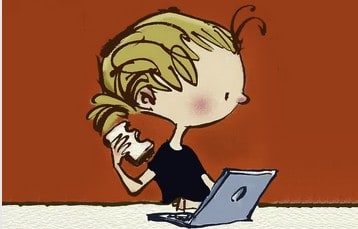Study Says Doing This One Thing Can Reduce the Odds of Dementia by More Than 50%

Recently, while my 82-year-old mom was staying with me, I noticed her stuffing her pockets with candy and cookies wrapped in tissues. She picked her teeth constantly, a nervous habit, and in the absence of dental floss broke off the sharp silver teeth
of her comb and shoved the metal between her teeth. She refused to bathe. I found myself cataloguing all this, the many ways in which Alzheimer’s disease has ravaged her brain.
Watching a parent transform into a toddler-like dependent who throws tantrums and can’t be left alone for more than five minutes is heartbreaking. But Heather Sandison, N.D., author of Reversing Alzheimer’s, says it can also be highly motivating. As founder of Solcere, a brain-health clinic, and Marama, a residential memory-recovery facility in San Diego, Sandison has helped people ditch alcohol, get moving and adopt a brain-friendly diet after watching a loved one suffer from Alzheimer’s.
The number of Americans who develop dementia each year will double from 2020 to 2060.
Advertisement – Continue Reading Below
Yet according to a study published in Nature Medicine, the number of Americans who develop dementia each year will skyrocket from 514,000 in 2020 to 1 million in 2060 as baby boomers age. Plus, because women live longer, they have a 48% chance of developing dementia in their lifetimes compared with a 35% chance for men. It’s a safe bet that anyone who lives long enough will suffer from some form of memory loss. To prepare for this possibility, my husband and I have set up care plans (and set aside funds) so our adult children won’t have to make tough decisions on their own.
this simple act may protect your brain from dementia
The Power of the Pen
Since I was a little girl, I’ve been putting pen to paper to track my thoughts and feelings, set goals and make sense of the world. Apparently I’m in good company. Joan Didion famously said, “We tell ourselves stories in order to live.”
Advertisement – Continue Reading Below
Beyond providing clarity and the opportunity for self-reflection, science suggests that writing by hand has brain-protective benefits. A January 2024 study published in Frontiers in Psychology reported that it activated more areas of the brain than typing and led to low-frequency synchronous brain waves in the back of the head (the visual cortex) via the sensory processing areas and all the way up to the top of the head (the motor cortex). “Such brain waves in exactly those parts of the brain are beneficial for learning and memory,” says study author Audrey van der Meer, Ph.D., M.Sc., a professor of neuropsychology at the Norwegian University of Science and Technology.
In one study, journal writing reduced the odds of all-cause dementia by more than 50%
Another study, published in The Journals of Gerontology in 2016, reported that journal writing reduced the odds of all-cause dementia by more than 50%. Additionally, the use of more complex language in the writing predicted a 25% reduction in risk of Alzheimer’s. “You use your body and senses to a larger extent when writing by hand versus typing, and the letters you draw on paper need to be precisely formed, which requires hand-eye coordination and fine motor skills,” says van der Meer. “All that is great stimulation for the brain.”
So as I watch my mom sink into the abyss of dementia, I’ve naturally turned to writing as a lifeline. On a recent family vacation, I wrote about what we ate, what we did and who we saw, hoping to capture details my future brain might struggle to recall. It struck me that I was in essence creating revivable memories.
Soon, my catalogs of daily activities evolved into handwritten letters addressed to a “future me” —something tangible for my adult children to use as an “Instruction Manual for Mom” should I ever begin losing my mind. Each letter in the series acknowledges a harsh truth.
On Dementia
Yes, you are in the throes of dementia. I imagine it’s a special kind of hell to be locked inside a brain that can’t follow simple instructions, one that can’t make sense of anything happening in the moment. It’s natural to be scared, to act in ways that are counter to who you are, and that’s why you need skilled around-the-clock help. Your children may tell you that you’re not a burden. Trust me, they are lying.
Others address specific aspects of the disease:
Advertisement – Continue Reading Below
On Bathing
I know you don’t think you stink, but you do. I know the water may feel like pins and needles on your thinning skin, but you need to wash yourself with soap and water. Even if it’s just a sponge bath. You also need to wear deodorant.
On Dead People
Sometimes you will think


